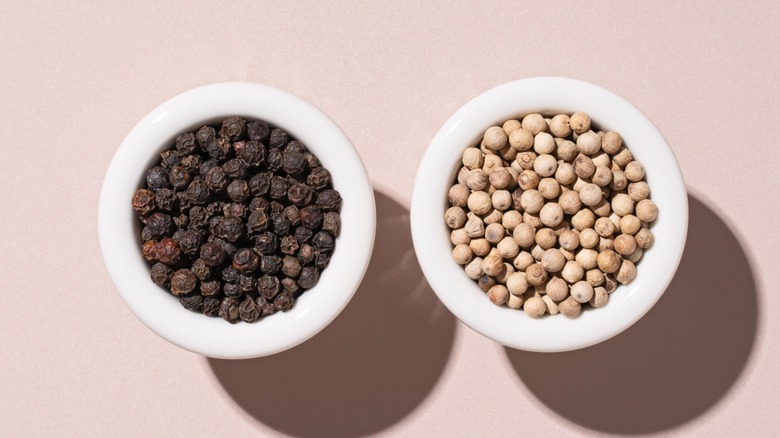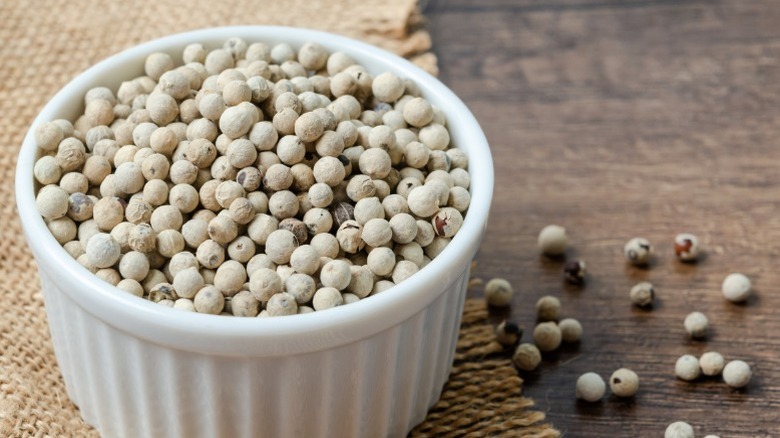Why Is White Pepper More Expensive Than Black Pepper?
Chances are good that you have black pepper somewhere in your house, whether in powder form or in a grinder that contains whole peppercorns. But not every kitchen has white pepper, which (aside from lending its name to the most underrated Ween album) offers plenty of peppery flavor without covering your food in unsightly black specks. Why is that? Well, it's partially because it's more specialized. It's most often used to flavor pale-colored foods (such as mashed potatoes or chicken), as well as certain sauces, including the secret Big Mac sauce. But also, since it takes longer to process, white pepper is more expensive than its black counterpart.
Let's start with where pepper comes from. Although chiles like jalapeño or habañero are often referred to as "peppers," peppercorns come from a completely different genus. Black pepper, or piper nigrum, is a flowering vine, and peppercorns are the plant's fruit. They're often referred to as "berries," but as peppercorns have stones in the middle, they're actually drupes, like cherries or mangos. As you might expect, there are some similarities — they're both present in the blend of KFC's legendary 11 herbs and spices, for instance. The differences between black and white peppers start when the fruits are harvested but don't end there.
White pepper production is more complicated than black pepper
Black peppercorns are unripe peppercorns. By being picked and dried, they get a deeper, darker color, as well as a more complex flavor. White peppercorns, on the other hand, are fully ripe, and the production process takes longer. After being picked, a ten-day fermentation process begins, where the peppercorns are soaked in water before being peeled. This takes away some of the more complex black pepper flavors, resulting in a simpler, more straightforward flavor. It also results in that overwhelmingly pungent smell, considerably less pleasant than the nose-tingling fruitiness of black pepper.
As a result of this ten-day process, less white pepper gets made than black pepper. And, thanks to supply and demand, that makes it more expensive than black pepper, too. For small amounts, black and white pepper can be used interchangeably, but if it's an important flavor in the dish, it would be prudent to pick the proper pepper.

